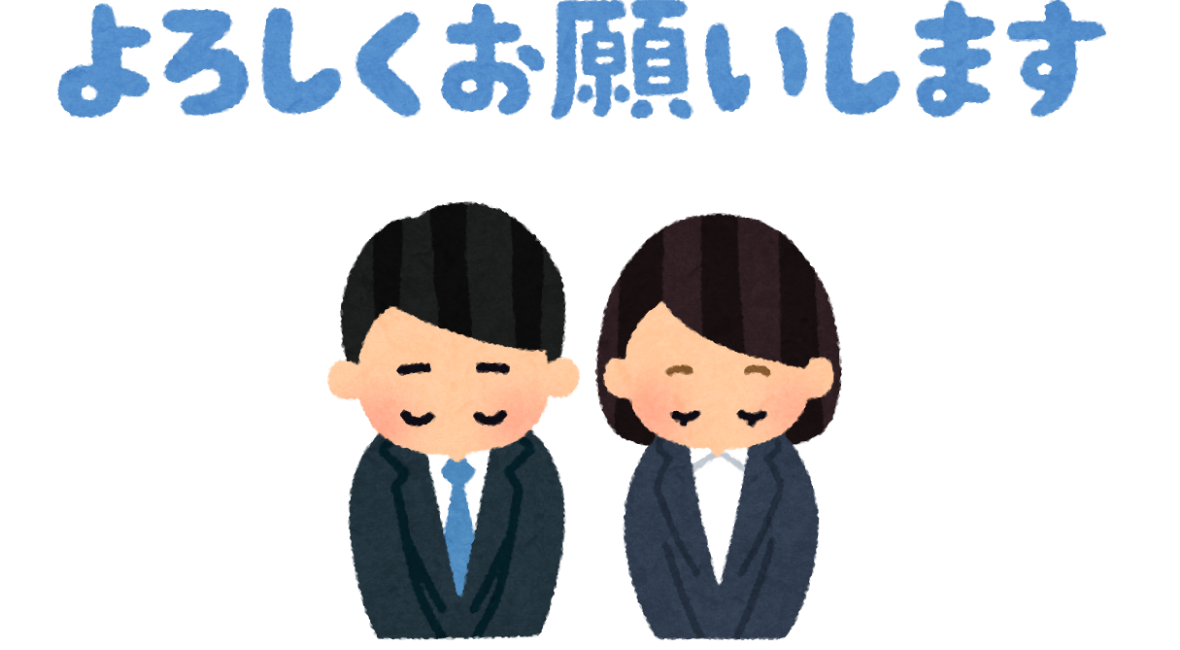One of the most challenging things for those studying Japanese is Keigo (honorific expressions). And among the many honorifics, one of the most representative is the phrase “よろしくお願いします (Yoroshiku onegaishimasu).”
It is virtually impossible to communicate with Japanese speakers without having to use this expression at some point or another. It is used not only in business, but also in various everyday situations. It may seem simple at first sight, but eventually you realize just how complex its usage is.. And if your goal is to achieve fluency in Japanese, you must master this expression.
In this post, I will explain the meaning and typical usage of the phrase “yoroshiku onegaishimasu”. If you read to the end, you will be able to use “yoroshiku onegaishimasu” correctly.
So let’s get started. Yoroshiku onegaishimasu.
Meaning of “yoroshiku onegaishimasu”
To begin with, what does “yoroshiku onegaishimasu” mean?
The phrase “yoroshiku onegaishimasu” can be divided into two parts: “yoroshiku” and “onegaishimasu”.
The simple second half, “onegaishimasu,” is an expression used to request something to someone. In English, it is translated as “Please (do).” The first half, “yoroshiku,” is an old Japanese word meaning “appropriately” or “properly. There is a similar word “よし (yoshi)”, but “yoshi” means “good”, while “yoroshiku” does not necessarily mean “good”, but “appropriately” or “properly”.
The literal translation of “yoroshiku onegashimasu” would be something like “Please do it properly,” but the point is to leave it up to the other person to decide what to do. It is a vague expression that is typical of Japanese, meaning “Please do what you think is appropriate within your capabilities,” rather than specifically stating what you want to ask for. This way, the other party will not say “No,” and the conversation will proceed smoothly.
In the following, I will show the typical usages of “yoroshiku onegaishimasu”.
Typical Usages of “yoroshiku onegaishimasu”
“Yoroshiku onegaishimasu” as “Nice to meet you” in self-introductions
When introducing yourself for the first time, you say your name, hometown, job, etc. and then at the very end you add “yoroshiku onegaishimasu.” In this case, “yoroshiku onegaishimasu” is equivalent to “Nice to meet you” in English.
“Yoroshiku onegaishimasu” at the beginning of a meeting or job interview
When starting a meeting or a job interview, “yoroshiku onegaishimasu” is said after the moderator has given their opening talks. In this case, it means “Shall we begin” or “Lets get started” in English.
The participant usually replies “yoroshiku onegaishimasu.”
“Yoroshiku onegaishimasu” when thanking in advance.
Although I mentioned above that “yoroshiku onegaishimasu” does not convey a specific request, it can be used to make a specific request.
For example,
事前(じぜん)に資料(しりょう)をご確認(かくにん)いただくよう、よろしくお願(ねが)いします。
Please review the materials before you come to the meeting. yoroshiku onegaishimasu.
In this case, adding “yoroshiku” has the effect of softening the expression while conveying the feeling of “I would like to ask you to do.” In this case, “yoroshiku onegaishimasu” is equivalent to “Thank you (in advance)” in English. The Japanese equivalent of “Thank you” in English is “Arigatou gozaimasu,” but it is not used when thanking someone in advance. When thanking someone in advance, you should use “yoroshiku onegaishimasu” instead of “Thank you.”
“Yoroshiku onegaishimasu” at the end of an email message.
Although rarely used in emails between friends, in business emails, “yoroshiku onegaishimasu” is written at the end of emails. This is almost the same as “Best regards” or “Yours truly” in English emails.
“Yoroshiku onegaishimasu” is also used in many other situations. For example, when you ask someone to go out or make a will you marry me proposal, you will expect to be said “yoroshiku onegaishimasu” to make it official.
Variations of “yoroshiku onegahisimasu”
The phrase “yoroshiku onegaishimasu” can be changed into various forms depending on the person you are addressing and the situation.
- Casual: “よろしく (yoroshiku)” (friends, family, partner etc.)
- Neutral: “よろしくお願いします (yoroshiku onegaishimasu)”(sufficiently polite in most situations)
- Polite/Humble: “どうぞよろしくお願いいたします (Dozo yoroshiku onegai itashimasu)” (reserved for very formal business interactions, communication with someone who is in a much higher position than you, etc.)
Summary
While “yoroshiku onegaishimasu” is basically used to ask someone for something, it can also be used to start an interaction, activity, or relationship. It is a very useful phrase that has the effect of smoothing out the conversation.
When you first introduce yourself to someone you have just met, try saying, “yoroshiku onegaishimasu.”


